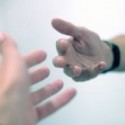5 Signs Drug Treatment Centers are Your Only Hope
It’s hard to see addiction for what it is when its effects continue to influence a person’s perceptions. Making the decision to get needed treatment help also poses a tremendous challenge. Addiction operates as a chronic brain disease that impairs addicts socially, psychologically, physically and spiritually, according to the American Society of Addiction Medicine.
After a certain point, it becomes harder and harder to deny the effects of addiction in one’s life. While attempts at self-imposed abstinence are definitely an option, multiple failed attempts are a sign a person needs drug treatment help.
Here are five signs drug treatment help may be your only hope for recovery:
1. Loss of Control

If you’ve lost control of your drug use and cannot stop on your own, treatment centers can help.
The effects of drugs on the brain over time best illustrate the disease aspect of addiction in a person’s life. Whether opiates or stimulants, the brain develops a physical dependence on addictive drugs as brain cell functions grow weaker with ongoing use.
In the process, the brain becomes less sensitive to drug effects, requiring increasingly larger doses along the way. As a result, addicts start to lose control of the amount of drugs they use in an attempt to meet the brain’s increasing demands.
2. Neglected Responsibilities
As the brain’s demand for more drugs increases, the time and money involved with procuring needed supplies start to take a toll in a person’s life. Personal relationships with friends and family lose significance making it that much easier to neglect important relationships.
Work responsibilities also start to pale in the face of the ongoing anticipation that surrounds the addict’s next “fix.” When left untreated, this behavior only worsens over time as drugs continue to warp a person’s perceptions and priorities.
3. Disregard for Negative Consequences
Probably the most glaring effects from long-term drug use lie in the way drugs change a person’s personality and character. Someone who normally lives by certain values, such as a strong work ethic, strong ties with family and abiding by the law starts to do things he or she wouldn’t normally do.
Driving under the influence, skipping work and insulting or offending others becomes commonplace occurrences. Negative consequences take on less importance as the drug takes over a person’s life.
4. Relationship Problems
As drugs wreak havoc on the brain’s chemical processes and functions, addicts start to experience mood swings on a frequent basis. Mood swings can take the form of extreme depression, elation or even outright hostility and violence.
These moods will no doubt damage the relationships a person has with others. Conflicts, fighting and an overall disregard for the feelings of others starts to drive those closest to the addict further and further away. While others can plainly see these changes, the addict often doesn’t.
5. Lifestyle Changes
Over time, what was once a normal everyday lifestyle turns into a drug-seeking, drug-using cycle that gradually destroys a person’s life. Addicts naturally transition into new social groups made up of other drug users. Once drugs become the number one priority, a person’s lifestyle inevitably revolve around getting and using drugs.
At this point, it’s all but impossible to just “kick the habit” and resume normal everyday life. The need for drug treatment centers is pretty much a given; especially when multiple attempts to quit using have failed.
